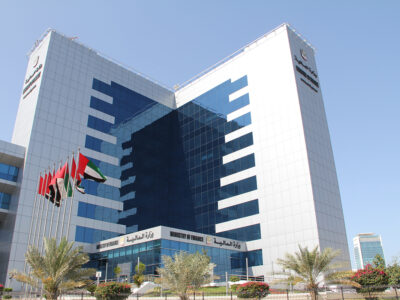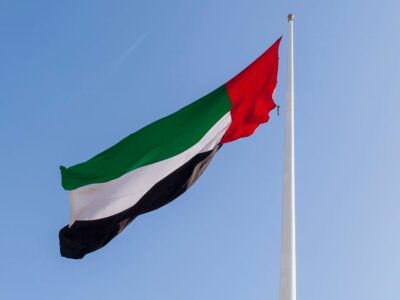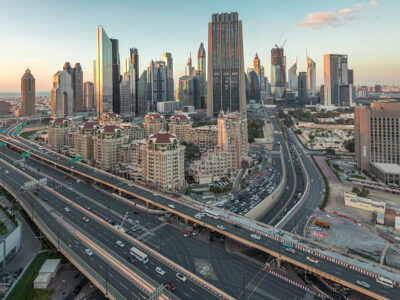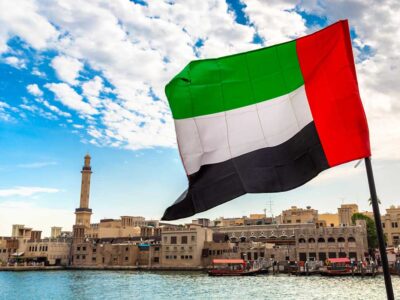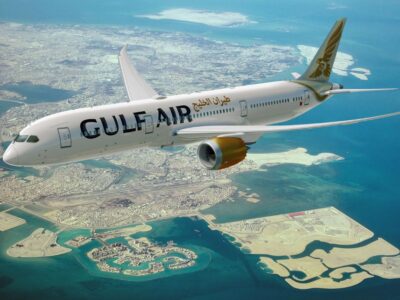Abu Dhabi set a quarterly GDP record in Q3 2024, according to the Statistics Centre – Abu Dhabi (SCAD).
A statistical report revealed that Abu Dhabi’s economy grew by 4.5 per cent in the third quarter of 2024 compared to the same period last year, achieving its highest quarterly value of AED301.8bn ($82.2bn).
The non-oil economy demonstrated robust growth of 6.6 per cent per cent, reflecting Abu Dhabi’s strong economic momentum and its success in surpassing global expectations.
Abu Dhabi GDP
Despite a challenging global environment, Abu Dhabi’s economy continues to excel. Preliminary estimates released by SCAD indicate that non-oil activities contributed 54 per cent to the overall economy in Q3 2024, highlighting the Emirate’s commitment to economic diversification.
Abu Dhabi’s GDP for the first three quarters of 2024 (January to September) grew by 3.9 per cent, while its non-oil economy recorded a 5.9 per cent increase in the same period of time, demonstrating sustained resilience.
Ahmed Jasim Al Zaabi, Chairman of the Abu Dhabi Department of Economic Development (ADDED), said: “The steady performance of Abu Dhabi’s economy over the past years reaffirms the effectiveness and efficiency of our multi-dimensional diversification strategy, proactive policies, progressive regulatory frameworks, and countercyclical measures to address mega shifts in the global economy and market fluctuations.
“The attributes of our soaring Falcon Economy have established us as a rising economic powerhouse and a global magnet for talents, businesses, and investments.
“With our focus on strengthening public-private partnerships to develop high-growth sectors, significant government capital investments continue to supercharge Abu Dhabi’s development across key sectors.
“In 2024, 144 new projects were approved by Abu Dhabi government with a total budget of AED66bn ($18bn), focusing on vital areas such as housing, education, tourism, and natural resources. Furthermore, strategic investments in transport infrastructure saw the launch of multiple traffic improvement initiatives with a budget exceeding AED3bn ($817m).
“Major agreements were also secured by Etihad rail with international leaders in rail and infrastructure, pave the way for enhanced connectivity and economic integration. As we move forward, we are doubling down our efforts to accelerate Abu Dhabi’s economic growth and transition to a smart, diversified, and sustainable economy, ensuring a brighter tomorrow for the coming generations.”
Abdulla Gharib Alqemzi, Director General of SCAD, said: “Abu Dhabi’s economic performance reflects the emirate’s focus on diversification and its ability to attract sustained investments. Foreign investment, which reached AED904.5bn ($246bn) in 2023, underscores Abu Dhabi’s proactive approach to fostering a dynamic business ecosystem.
“This success is underpinned by the Emirate’s excellence in services, supported by high-end infrastructure, a robust digitalisation strategy, and the prosperous visionary leadership, which continue to position Abu Dhabi as a global economic hub”.
Abu Dhabi’s transport and storage sector recorded notable growth in Q3 2024, with a growth rate of 18 per cent and value added at AED7.1bn ($1.9bn).
This impressive performance can be attributed to significant investments in the sector, including increase in general cargo volumes and rise in container handling.
The sector’s robust growth was further supported by oil logistics and services and increase in ports revenues in Abu Dhabi.
The financial and insurance sector also witnessed substantial expansion, achieved a growth rate of 11.6 per cent per cent and contributing 6.4 per cent to Abu Dhabi’s GDP with a value added of AED19.5bn ($5.3bn).
This growth highlights Abu Dhabi’s position as a leading financial hub, driven by increase in loans and the growth in deposits across major banks. These figures reflect the sector’s robust performance and its integral role in supporting the Emirate’s economic ambitions.
The construction sector continued its upward trajectory, growing by 10 per cent per cent in Q3 2024. This sector contributed 8.8 per cent to Abu Dhabi’s economy, with a total value added of AED26.7bn ($7.3bn).
The sector’s growth was driven by a significant increase in investments in urban infrastructure projects, which in turn led to a notable rise in the number of jobs created within the sector during the same period.

In the real estate sector, growth was recorded at 6.1 per cent per cent, and value added at AED10.7bn ($2.9bn), contributing 3.5 per cent to Abu Dhabi’s GDP.
These figures underline the continued demand for high-quality real estate offerings in Abu Dhabi, as well as the sector’s role in contributing to the Emirate’s diversified economic base.
The manufacturing sector remained a cornerstone of Abu Dhabi’s non-oil economy, with a value added of AED29.4bn ($8bn) in Q3 2024.
The sector grew by 2 per cent year-on-year in the third quarter in 2024, contributing 9.7 per cent to the emirate’s GDP, confirming its position as the largest non-oil activity for the seventh quartet in row.
This performance highlights the success of Abu Dhabi’s efforts to expand its industrial base, ensuring a sustainable and competitive economy.
The electricity, gas, and water supply sector also made notable contributions to the economy in Q3 2024, with a value added of AED5.5bn ($1.5bn).
This sector accounted for 1.8 per cent of Abu Dhabi’s GDP and achieved a growth rate of 5 per cent, reflecting the Emirate’s commitment to sustainability and efficient resource management.

